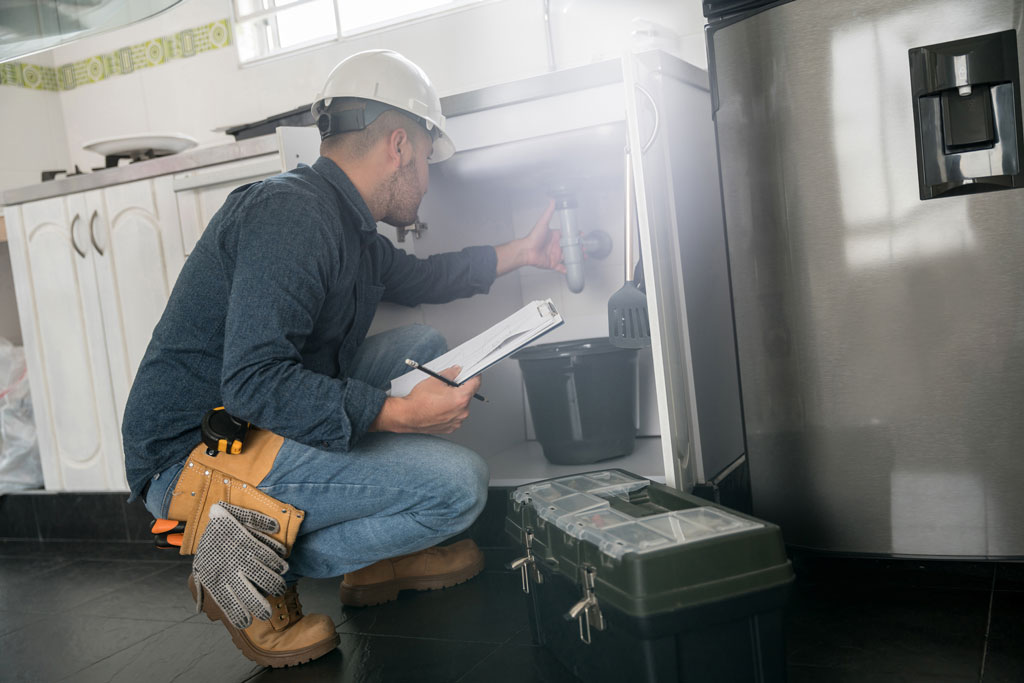Just about every person seems to have their private rationale with regards to 9 Basic Tips for New Homeowners.

Ending up being a property owner is an exciting landmark, however it comes with duties, especially when it pertains to maintaining your home's pipes system. For novice homeowners, recognizing the fundamentals of plumbing can conserve you from costly repairs, water damage, and unanticipated emergency situations. This guide gives necessary plumbing tips to aid you confidently manage and keep your home's plumbing system.
Locate the Key Water Shut-Off Valve
Among the first things every house owner ought to know is where to discover the primary water shut-off valve. In case of a major leak or ruptured pipe, switching off the water system quickly can protect against comprehensive damages. Generally, the shut-off shutoff is located near the water meter, in the cellar, or outside the home. Evaluate it to guarantee it works and label it for simple identification.
Understand Your Home's Pipes Layout
Acquaint yourself with the basic layout of your home's pipes system. Know the locations of major fixtures like hot water heater, drain lines, and outside water spigots. This expertise will can be found in handy when repairing issues or discussing troubles to an expert plumbing professional.
Discover to Take Care Of Common Obstructions
Clogs are among one of the most regular pipes issues house owners encounter. Equip your home with a bettor and a drainpipe snake to deal with minor blockages in sinks, commodes, and shower drains. Prevent making use of chemical drain cleaners, as they can harm pipes in time. Instead, go with natural services like cooking soft drink and vinegar for minor blockages.
Consistently Inspect for Leaks
Little leakages can escalate into substantial troubles if left unattended. Regularly inspect under sinks, around commodes, and near devices like dishwashing machines and cleaning equipments for signs of leaks. Try to find water spots, wetness, or uncommon odors, and address leakages immediately to stop water damages and high water costs.
Keep Your Hot Water Heater
The water heater is a vital component of your home's plumbing system. Flush it annually to remove sediment buildup that can reduce its effectiveness. Inspect the temperature level setup; it needs to ideally be about 120 ° F( 49 ° C) to stop hot and reduce energy consumption. If your water heater shows signs of wear or leaks, consult a professional plumber for an examination or substitute.
Prevent Flushing Improper Products
Bathrooms are designed to handle human waste and toilet paper-- absolutely nothing else. Prevent flushing wipes (even those classified "flushable"), womanly hygiene items, cotton swabs, or paper towels. These things can trigger clogs and harm your sewer lines, bring about costly repair work.
Shield Your Water Lines During Winter months
In chillier climates, frozen pipelines are a common problem that can bring about bursts and water damages. Shield exposed pipelines in locations like basements, attics, and garages. Throughout freezing weather condition, allow faucets drip to keep water moving and prevent freezing. If you intend to be away throughout winter months, ensure your home's heater continues to be operational.
Know the Indications of Pipes Troubles
Identifying early indications of pipes issues can save you money and time. Common indication include:
If you observe any of these problems, explore additional or call a plumbing professional for assistance.
Exercise Appropriate Garbage Disposal Usage
If your home has a garbage disposal, utilize it correctly to stay clear of blockages and damage. Never ever put oil, fibrous veggies (like celery), bones, or large food scraps down the disposal. Constantly run cold water while using it, and tidy it regularly with baking soda and vinegar to maintain it working efficiently.
Maintain a Plumbing professional's Get in touch with Information Handy
Regardless of your best shots, some plumbing concerns will call for professional aid. Study and determine a trustworthy plumbing technician in your area before an emergency situation develops. Having their get in touch with information readily offered ensures you can act rapidly when essential.
Screen Your Water Bill
Unexplained increases in your water bill can indicate hidden leaks. Compare your monthly usage and investigate any abnormalities. Early discovery of leaks can avoid water waste and expensive damage to your home.
Set Up Precautionary Tools
Take into consideration buying tools like water leakage detectors and stress regulatory authorities. Drip detectors can inform you to tiny leakages before they end up being considerable issues, while stress regulators avoid damage caused by extreme water stress.
Verdict
Owning a home implies taking obligation for its upkeep, and plumbing is no exemption. By adhering to these important ideas, new property owners can stop several common plumbing problems, conserve money, and ensure their home's plumbing system runs smoothly. While DIY repairs are handy, knowing when to call an expert plumbing professional is equally important. With a little understanding and aggressive care, you can avoid pipes calamities and enjoy your new home with confidence.
Essential Plumbing Tips for New Homeowners
Moving into a new home is an exciting milestone, but it also comes with a list of responsibilities. One of the most important areas to understand is your home’s plumbing system. Good plumbing is essential for your home’s functionality and your family’s comfort. Learning some basic plumbing tips can help you avoid costly issues and ensure your plumbing stays in good shape.
Knowing your main water shutoff valve is crucial. In case of a leak or burst pipe, shutting off the water quickly can prevent significant damage. Familiarizing yourself with regular plumbing maintenance tasks can also keep your system running smoothly. Simple checks and minor fixes can often save you from larger problems down the road.
Handling common toilet issues and preventing clogged drains are other essential skills for new homeowners. Toilets and drains are used multiple times a day, so keeping them in good working order is vital. By learning how to handle these common problems, you’ll be better prepared to maintain your home efficiently.
In this article, we will cover some essential plumbing tips every new homeowner should know. From finding your main shutoff valve to preventing clogs, these tips will help you manage your home’s plumbing with confidence.
Know Your Main Water Shutoff Valve
One of the first things to learn as a new homeowner is the location of your main water shutoff valve. This valve controls the flow of water into your home. In case of a leak or a burst pipe, knowing how to shut off the water quickly can save you from major water damage.
Look for the valve where the main water line enters your home. This is often located in the basement, crawl space, or near the water meter. The valve might be a wheel that you turn clockwise to shut off the water or a lever that you turn perpendicular to the pipe.
It’s a good idea to practice turning off the valve so you’re confident you can do it in an emergency. Make sure other family members know where it is and how to use it as well. Regularly check the valve to ensure it moves smoothly and isn’t corroded or stuck.
Handling Common Toilet Issues
Toilets are one of the most used fixtures in any home, so it’s important to know how to handle common issues. Some problems you might encounter include running toilets, clogs, and weak flushes.
A running toilet can waste a lot of water and raise your water bill. The most common cause is a faulty flapper. The flapper is the rubber piece that seals the tank water. If it’s worn or dirty, replace or clean it. Also, check the fill valve and adjust the float if necessary. Keeping these parts in good condition can stop your toilet from running constantly.
Clogs are another common issue. A plunger is usually the first tool to try. Place the plunger over the hole in the toilet and push down gently to create a seal, then pump it vigorously a few times to dislodge the clog. If that doesn’t work, use a toilet auger to reach deeper clogs.
Lastly, weak flushes can be caused by several factors. Check the water level in the tank; if it’s too low, the flush won’t be strong. Adjust the float valve to raise the water level. Also, clean the holes under the rim of the toilet bowl to ensure good water flow.
Preventing and Dealing with Clogged Drains
Clogged drains can be a major hassle, but preventing them is easier than you might think. Here are some tips to keep your drains flowing freely.
Watch what goes down your drains. Avoid pouring grease, coffee grounds, or large food particles down the kitchen sink. Use a strainer to catch hair and soap scum in bathroom drains. These simple steps can prevent clogs before they start.
Regular cleaning can also help. Pour a mixture of hot water, baking soda, and vinegar down your drains once a month to clear away the buildup. This natural solution can keep your pipes clean without harsh chemicals.
If you do get a clog, try using a plunger first. For tougher clogs, a drain snake or auger can help clear the blockage. Insert the snake into the drain and twist it to break up the clog or pull it out. Be patient, as this process might take a few tries.
For persistent clogs, you may need to call a professional to clear your drains thoroughly. Regular maintenance and good habits can go a long way in keeping your drains clear.
https://theirishplumber.ca/plumbing-tips-for-new-homeowners/
We were shown that report about Essential Plumbing Tips for First-Time Homeowners through an associate on a different web page. Loved our post? Please share it. Let someone else discover it. I praise you for being here. Kindly visit our blog back soon.
Book Now!
 Neve Campbell Then & Now!
Neve Campbell Then & Now! Ashley Johnson Then & Now!
Ashley Johnson Then & Now! Brandy Then & Now!
Brandy Then & Now! Marla Sokoloff Then & Now!
Marla Sokoloff Then & Now! Karyn Parsons Then & Now!
Karyn Parsons Then & Now!